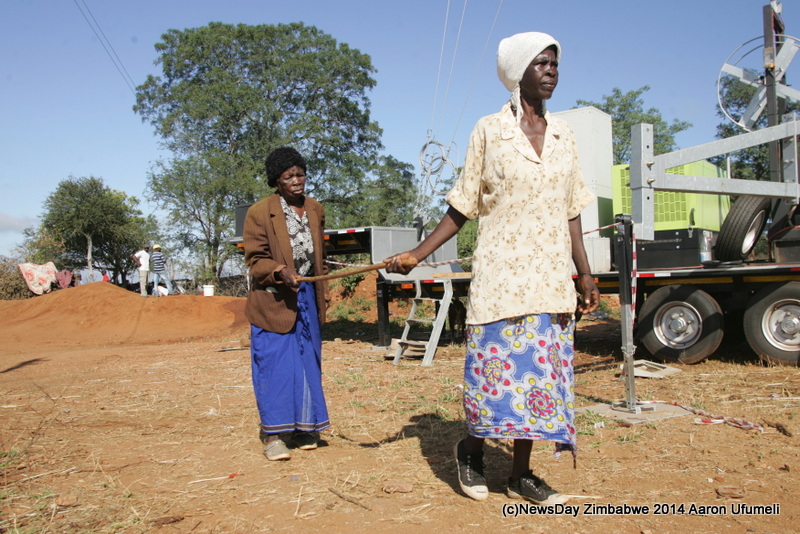
THE narrative of a tale of challenges that befell several families affected by floods at Tokwe-Mukosi and were later resettled at Chingwizi transit camp has been unveiled in a documentary film.
SIMBARASHE MANHANGO/ DANIEL CHIGUNWE
Done courtesy of Coalition Against Corruption (CAC), a pro-poor organisation, in conjunction with Zimbabwe Human Rights Association, the documentary is a joint effort that pities extreme violations of human rights.
Titled, Dhamu, Voice from the Tents, the documentary is the first of its kind and a groundbreaking invention that differs a lot from reports covered in the media.
Captured in the film are detailed voices of disgruntled victims shading light on the real, concerns, condition and environment subsiding in the tents.
Chief among the concerns include the squalid squatter like habitation complemented by grinding poverty, hunger, lack of access to proper sanitation, high population and extreme chances of diseases contraction.
Another detrimental challenge that remains a real threat uncovered in the film is lack of anti-retroviral drugs to cater for HIV and Aids patients camped at Chingwizi.
One villager who spoke in the film chronicled the urgent need for compensation from the government.
- Chamisa under fire over US$120K donation
- Mavhunga puts DeMbare into Chibuku quarterfinals
- Pension funds bet on Cabora Bassa oilfields
- Councils defy govt fire tender directive
Keep Reading
“All we want is compensation. We are tired of being fed lies and empty promises. We once had faith in the government that is why in the beginning we were cooperative,” said the villager.
“Up until now, nothing has been done and we have lost patience.”
Also portrayed in the film are gloomy images of a people trapped in an environment that has no security, where pregnant women, babies, handicapped people and the old grapple with poverty.
“We cannot be living like this. The proximity has not been comfortable at all and worse of all before we even talk about security and other issues, we have a high shortage of food and many a days we just have plain sadza since we have no relish” said one villager. Victims also bemoaned abuse of funds made available by donors.
“They now use our names to solicit money from donors and they just give us left overs. There is no apt distribution of the donated stuff according to what a family can consume,” one villager wept.
The film exposes the predicament of many a victims that have been left without basic necessities and loss of livestock dying of different diseases and lack of pastures.
CAC director Terry Mutsvanga said the documentary was meant to share with the world in visual the sufferings of the affected villagers.
“Our objective is part of our concerted efforts to show the nation what is truly transpiring at Chingwizi. For some time now the nation has only been hearing stories, without a certain picture and imagination of the real goings on,” Mutsvangwa said.
“We hope that the message will be very clear and instil constructive solutions to assist the victims.”
At large the documentary chronicles the Tokwe-Mukosi village lifestyle that has been adopted by victims, condition of the dam and the real current state at Chingwizi camp that depicts feelings of shattered hopes and dreams of villagers.











